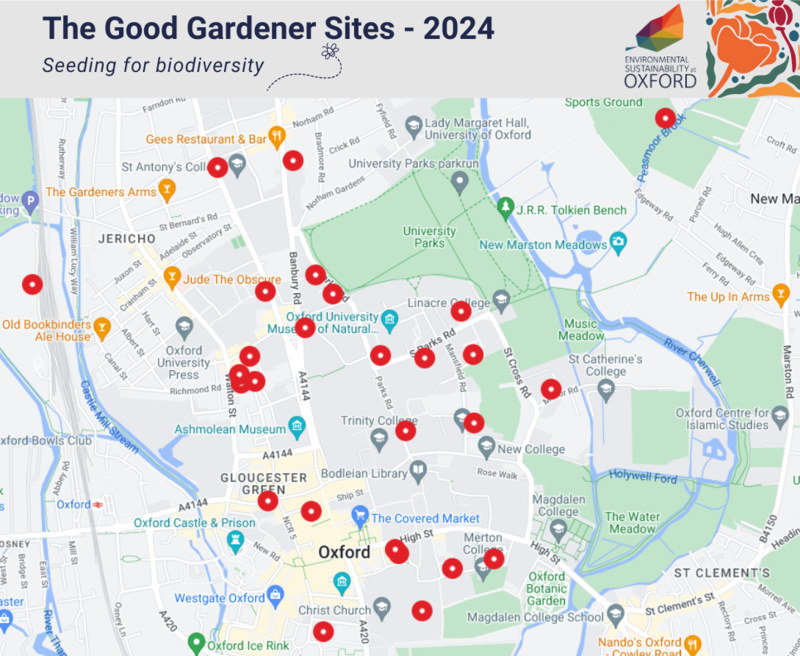If you have a Good Gardener site in your building or college, don’t forget to update us by sharing photos as it blooms. Environmental Sustainability team @OxEnvSust and use the hashtag #OxGoodGardener.
Caring for your wildflower meadow
Whilst most wildflowers need little care, here are some things you can do to help them grow:
- Avoid using fertiliser
- Remove weeds
- In dry weather, water the wildflowers once a week. Most of the time wildflowers do not need additional watering unless the weather is very dry.
- Cover the area lightly with leaves, twigs or branches to protect the seeds from being eaten by birds and cats before having enough time to grow.
In due time, the area may be mowed by your gardening team. Do not worry if the meadows are mown after the flowering season. Mowing once a year is good for the soil and the seeds can rejuvenate in future seasons.
* If any part of your gardening pack remains that you do not need, please feel free to send this back to the Environmental Sustainability team for reuse. You can address the pack to the Malthouse, Tidmarsh Lane, OX1 1NQ using the University’s internal post.




